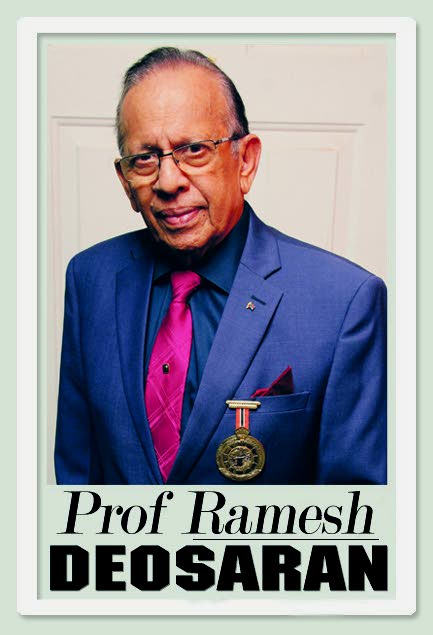What makes the SEA unfair?

When ideas and information are put into numbers, it helps to improve understanding.
While saying, “It not far,” or “Education system inequitable,” or “Yuh was driving fast” may give an idea, it does not tell us exactly how far, how many or how fast. Measurement is important in competitions such as the Olympics.
The SEA is really a competition between numbers – student marks.
Giving numbers to performance helps neutralise prejudice and favouritism. The Olympic 100-metre race can be considered a merit-based competition, since, for example, the timing cameras don’t care which runner came from a poor single-mother family, or which training school he or she attended, etc.
At the start, each runner is considered equal. Whether the timing camera reveals a difference of .01 second or .001 second between first and second place, the result is accepted because the measurement is trusted.
Some people consider the SEA an “objective, merit-based” examination. Others have called it a ”rat race,” perceived as being a bit inhumane and insensitive to the frightened 11- and 12-year-olds, and without considering which child is from a rich or poor family, whether some have computers or not, who got private lessons, differences in their natural aptitudes, what kind of school they attended, etc.
This and more are within the psychology and sociology of education – important disciplines that argue that all students are not equal at the start of the SEA race. Some are psychologically ahead of others. Unfairness develops. Some students will likely get higher SEA marks than others by having role models and physical comforts at home, by coming from high-performing schools, and by having a natural ability for grammar-type subjects.
Then there is the challenging story of probabilities and proportions. For example, not all poor students get under 30 per cent in the SEA. Not all rich students get into “prestige” schools.
This is not the precision found in physics or chemistry. Compared to the US, England and Europe, our ministry of education suffers from an impoverishment of reliable data on students’ performance and socio-economic background.
Without these numbers, how will you tackle educational inequity? There is a severe political aversion to research and data collection. Politicians in office are always in a hurry to get quick “results” and make announcements.

It was shocking to hear, in 2019, chief education officer Harrilal Seecharan declaring that the “new” system to get data and reports from the ministry is to go through the Freedom of Information Act. Sitting next to then education minister Anthony Garcia, he spoke more like a politician than a professional public servant.
It would serve her well if Education Minister Dr Nyan Gadsby-Dolly should publish the available up-to-date reports from the ministry (eg administrative reports, national tests trends, schools’ examination performance, etc). Secret government creates unhealthy democracy. The numbers will tell us about our educational realities and the ministry’s accountability.
We must become a science-driven society. Too many international agencies have complained about the paucity and quality of our social and economic data.
Is the National Statistical Institute (NSI) of TT Bill (2018) still stuck in a joint select committee? There is serious worry over the composition of this NSI Bill, which is designed to replace the Statistic Act, including the Central Statistical Office. The first of its 11 functions is “to collect, compile, abstract and analyse statistics and disseminate official statistics.” Another is “to analyse data and provide reports … for public information.”
The intrusive operations of the NSI, where necessary, need to be subjected to improved safeguards. Equally worrying, as Dr Terrence Farrell, repeatedly pointed out, are the overbearing powers of the minister, especially in his direct role in appointing the NSI board. Why not make these appointments by presidential discretion to build public trust in the NSI and the confidentiality of certain information gathered?
Also requiring review are the heavy fines and jail proposed for company directors and citizens who refuse to divulge information considered private. Elton Singh asked that the NSI should collect all statistics from state entities and “pay private entities for data rather than threatening imprisonment.” Noble Phillip stated: “The NSI and its board will be less free from political influence than the present Petrotrin board.” Imagine that.

Comments
"What makes the SEA unfair?"